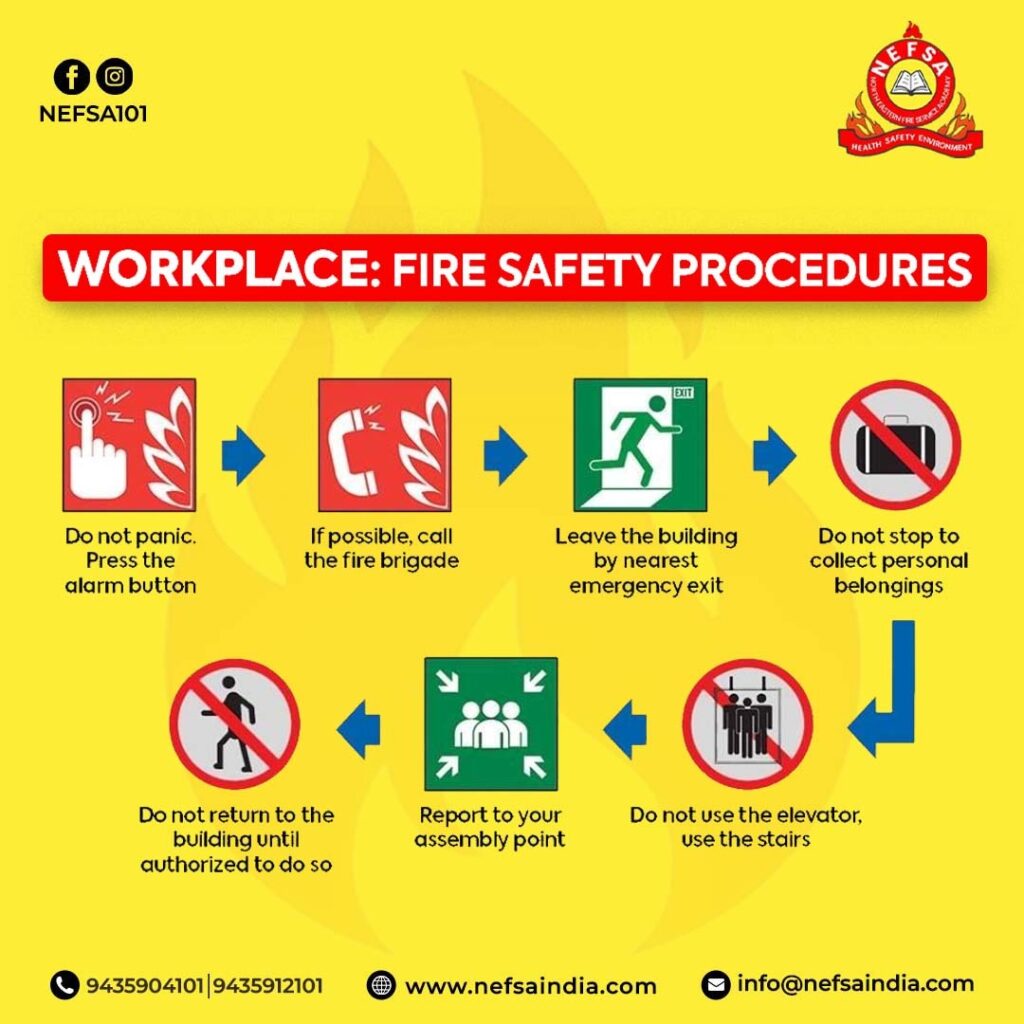Living in a dormitory can be an exciting and memorable experience for students. However, it’s essential to prioritize safety, particularly when it comes to fire prevention and preparedness. The National Fire and Safety Association (NEFSA) in India offers valuable advice to ensure that students are well-informed and equipped to handle fire emergencies. In this blog, we will discuss some essential fire safety tips for students residing in dormitories, as recommended by NEFSA India.
Know the Emergency Exits:
One of the crucial fire safety measures is familiarizing yourself with the emergency exits in your dormitory. Take the time to locate the nearest exit points and understand the evacuation routes. In case of a fire, always use the stairs instead of elevators, as they may malfunction during an emergency.
Install Smoke Alarms and Fire Extinguishers:
Ensure that your dormitory room is equipped with working smoke alarms. Test them regularly and replace batteries as needed. Additionally, consider investing in a small fire extinguisher for your room. Learn how to operate it correctly and keep it within easy reach.
Practice Responsible Cooking:
Cooking-related incidents are one of the leading causes of dormitory fires. Avoid leaving cooking unattended and always turn off stoves or other cooking appliances when not in use. Never use hot plates or electric cookers that are not allowed by the dormitory rules. In case of a fire in a pan, cover it with a lid to smother the flames, and never use water to extinguish a grease fire.
Electrical Safety:
Overloaded electrical outlets and faulty wiring can lead to dangerous fires. Avoid using multiple extension cords or adapters plugged into a single outlet, as they can overheat and ignite. Be mindful of any frayed wires or damaged electrical equipment and report it immediately to the dormitory maintenance team.
Keep Exits and Hallways Clear:
Ensure that corridors, stairwells, and emergency exits are always clear of any obstacles, such as bicycles, furniture, or clutter. Blocked exits can impede evacuation during an emergency and pose a significant risk to your safety.
Fire Drill Participation:
Participate actively in fire drills organized by your dormitory management. These drills simulate real-life emergency situations and help you become familiar with the evacuation procedures. Take them seriously and follow instructions given by the authorities.
Smoking Safety:
If you are a smoker, it is vital to adhere to the designated smoking areas within the dormitory premises. Never smoke in bed or near flammable materials. Ensure that cigarette butts are completely extinguished and disposed of in proper ashtrays.
Report Fire Hazards:
Stay vigilant and report any potential fire hazards you notice in your dormitory to the appropriate authorities. Additionally, be proactive in identifying hazards such as malfunctioning smoke alarms, damaged electrical outlets, or blocked fire exits. By taking these steps, you can contribute to preventing disasters and ensuring a safe living environment.
Conclusion:
Fire safety is a critical aspect of dormitory living, and students should be well-prepared to handle any fire emergencies that may arise. By following the fire safety tips provided by NEFSA India, such as knowing emergency exits, installing smoke alarms and fire extinguishers, practicing responsible cooking, and being mindful of electrical safety, students can significantly reduce the risk of fires in their dormitories. Remember, fire prevention and preparedness are everyone’s responsibility. Stay safe and be proactive in ensuring a fire-safe environment in your dormitory. To join our organization just click:- www.nefsaindia.com







